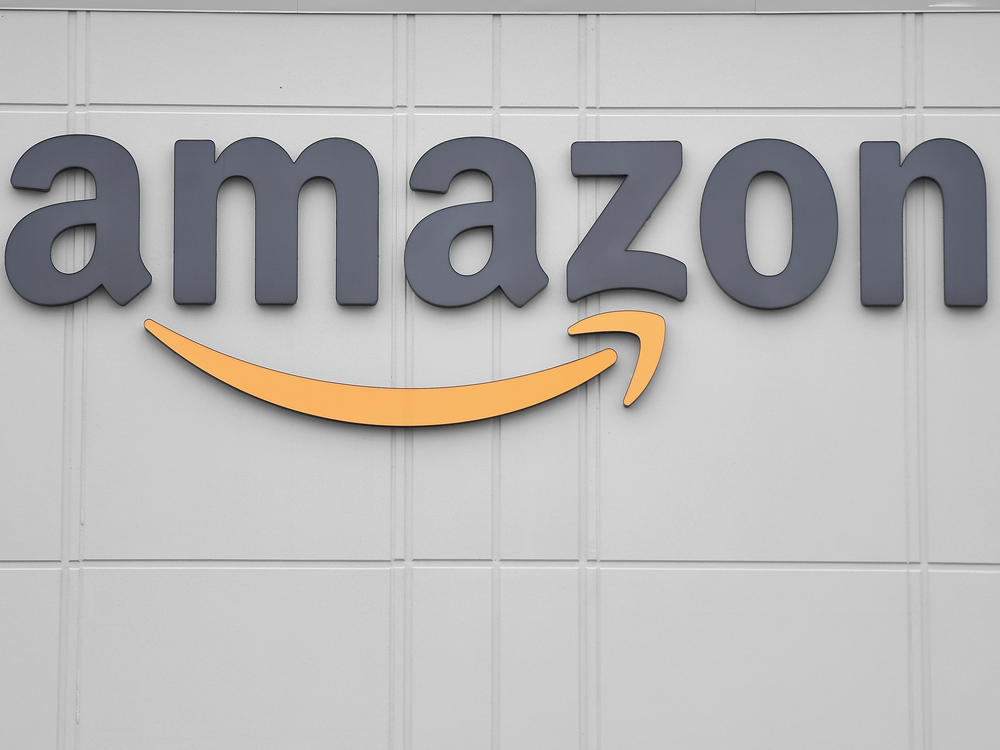Section Branding
Header Content
In Alabama, Workers At Amazon Warehouse Are Poised For Union Vote
Primary Content
A vote beginning this week among Amazon workers in an Alabama suburb could decide if a warehouse there becomes the company's first unionized facility in the U.S.
Ballots will go out on Monday to more than 5,800 workers at the warehouse in Bessemer, near Birmingham, asking if they want to join the Retail, Wholesale and Department Store Union. The election runs through March 29 and marks the first Amazon warehouse union vote since a group of technicians in Delaware voted against unionizing in 2014.
The mail-in vote will also come just days after the National Labor Relations Board shot down an effort by Amazon to delay the union election. The company had petitioned for a postponement reasoning that the vote — conducted by mail due to minimize spread of the coronavirus — should be done in person.
Amazon has battled back efforts to unionize their American facilities, even though many of its European warehouses operate under union agreements. Amazon representatives have also said that workers behind the union drive do not represent a majority of its employees.
"Our employees choose to work at Amazon because we offer some of the best jobs available everywhere we hire, and we encourage anyone to compare our overall pay, benefits, and workplace environment to any other company with similar jobs," Amazon spokesperson Lisa Levandowski said when Bessemer workers notified the NLRB of their intention to unionize in November.
RWDSU President Stuart Appelbaum told NPR last month that more than half the workers in Bessemer had signed cards in support of union representation. Appelbaum said that workers at the facility had reached out to the union over the summer, months after the facility had opened in March in the early days of the pandemic.
Workers at the Bessemer warehouse had described grueling productivity quotas and had wanted more input in shaping the workplace including how people get disciplined or fired, Appelbaum told NPR in January.
Support for the union drive has spread beyond the warehouse, gaining recognition from other unions and national attention.
Over the weekend, dozens gathered in the rain near the warehouse to voice their support for the union effort. Supporters carried placards representing local chapters of major unions and political organizations, including the Teamsters, the International Brotherhood of Electrical Workers, and the Democratic Socialists of America, Al.com reported.
Randy Hadley, president of the RWDSU Mid-South Council, noted to rallygoers the significance of a "yes" vote, which he said could set a precedent for the company's other facilities.
"Let's make a difference in our future," Hadley said, according to Al.com. "Our children, our grandchildren are going to end up working one day at a place like Amazon, and we need to fix it and make it better."
Sen. Bernie Sanders, I-Vt., and Rep. Andy Levin, D-Mich., have also voiced their support for the union election.
"It cannot be overstated how powerful it will be if Amazon workers in Alabama vote to form a union," Sanders said in a tweet on Saturday. "They are taking on powerful anti-union forces in a strong anti-union state, but their victory will benefit every worker in America. I'm proud to stand with them."
Separately, Levin and 49 other House representatives penned an open letter to Amazon CEO Jeff Bezos on Friday, chastising the company's efforts to halt union efforts and calling the Alabama vote "an opportunity for a reset."
"We ask that you stop these strong-arm tactics immediately and allow your employees freely to exercise their right to organize a union," the letter states.
Monday's vote also follows the recent announcement that Bezos will step down as CEO this summer.
Alina Selyukh contributed to this report.
Editor's note: Amazon is among NPR's recent financial supporters.
Copyright 2021 NPR. To see more, visit https://www.npr.org.

